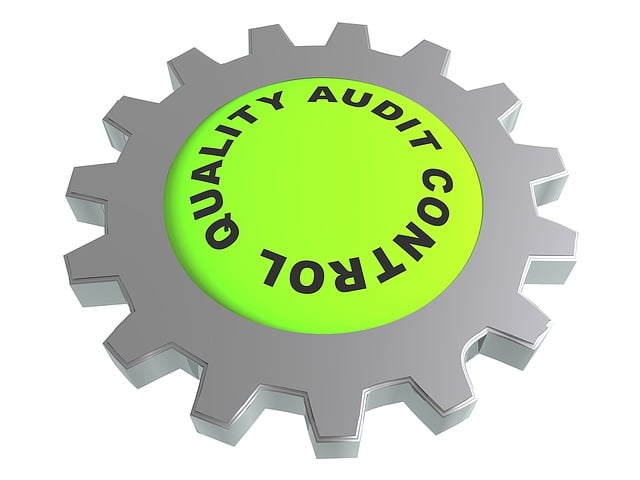Master Mobile SEO Audit: Optimize for Success

A SEO Audit for mobile focuses on optimizing website performance and user experience specific to sma…….
In the dynamic digital landscape, Search Engine Optimization (SEO) stands as a cornerstone for online businesses and content creators aiming to thrive in their respective niches. At the heart of SEO lies the concept of an audit—a meticulous evaluation process designed to uncover areas of strength and weakness, enabling strategic improvements. This article delves into the comprehensive world of SEO Audit, exploring its multifaceted aspects, global impact, economic implications, technological innovations, regulatory landscape, challenges, and future prospects. By the end, readers will grasp the critical role of SEO Audit in shaping online visibility and performance in an increasingly competitive digital arena.
SEO Audit is a systematic examination of a website’s technical, on-page, and off-page elements to assess its search engine rankings and overall user experience. It involves a thorough analysis of various factors that influence how search engines crawl, index, and rank web pages. The primary goal is to identify bottlenecks, optimize performance, and ensure the site aligns with best practices as defined by major search engines like Google, Bing, and Yahoo.
The concept of SEO Audit has evolved significantly since the early days of the internet. As search engines became more sophisticated, so did their algorithms. Early SEO practices focused on keyword stuffing and black-hat techniques, which led to a fragmented industry landscape. However, Google’s rise as the dominant search engine brought about significant changes. In 2015, Google introduced Core Web Vitals, a set of metrics evaluating user experience signals, marking a shift towards prioritizing user satisfaction over traditional ranking factors. This evolution underscores the ongoing need for SEO professionals to adapt and refine their audit processes.
The impact of SEO Audit extends far beyond borders, with diverse global trends shaping its practice and importance.
SEO Audit plays a pivotal role in the economic dynamics of online business and content marketing.
Technological innovations are at the forefront of shaping the future of SEO Audit.
Artificial Intelligence (AI) and Machine Learning algorithms are transforming SEO practices. These technologies enable advanced keyword research, content analysis, and predictive analytics to optimize content strategies. AI-powered tools can analyze vast data sets, providing insights into user behavior and search trends.
Advanced analytics platforms integrate with SEO Audit tools to offer comprehensive insights. By tracking user behavior, bounce rates, and time on site, businesses can make data-driven decisions to enhance their digital presence.
Automation has streamlined many aspects of SEO Audit. Automated tools can scan websites for technical issues, generate reports, and even suggest improvements, saving time and resources for SEO professionals.
SEO Audit must also consider the regulatory environment set by major search engines, particularly Google, which dominates the market.
Google provides extensive guidelines for webmasters to ensure fair and transparent rankings. These guidelines cover various topics, including content quality, mobile-friendliness, site speed, secure connections (HTTPS), and avoiding black-hat SEO practices. Adhering to these guidelines is essential for any SEO Audit to avoid penalties and maintain a positive search engine reputation.
As AI and machine learning evolve, regulatory bodies may introduce new guidelines to address emerging issues like personalized search results, algorithmic transparency, and data privacy concerns. SEO professionals must stay abreast of such developments to adapt their audit processes accordingly.
Despite its numerous benefits, SEO Audit faces several challenges that require strategic solutions.
Search engines’ algorithms are constantly evolving, making it challenging for SEO professionals to keep up with the latest changes. Staying informed and adapting strategies promptly is crucial to overcoming this challenge.
Some businesses employ unethical SEO practices, such as keyword stuffing or link farming, which can harm a website’s rankings and user experience. SEO Audits must identify and rectify these issues to ensure long-term success.
Staying ahead of competitors in terms of SEO is a constant challenge. Effective audit processes should include comprehensive competitor analysis to identify opportunities for differentiation and improvement.
The vast amount of data generated by online activities can be overwhelming. Utilizing advanced analytics tools and focusing on actionable insights helps SEO professionals make informed decisions despite the data overload.
The future of SEO Audit holds immense potential for innovation and growth, driven by technological advancements and evolving search engine trends.
AI will play an increasingly significant role in personalizing user experiences and search results. SEO Audits should consider content customization, contextual advertising, and personalized recommendations to cater to individual user preferences.
Voice and visual search are expected to grow in popularity. Optimizing for these search types involves structured data markup, natural language queries, and engaging visual content.
As the digital landscape matures, ethical SEO practices will become even more critical. This includes promoting transparency, user privacy, and sustainable online growth, ensuring long-term viability for all stakeholders.
In conclusion, SEO Audit is a dynamic and multifaceted discipline that plays a crucial role in the success of online businesses and content creators. By understanding its core components, global impact, economic implications, technological advancements, regulatory environment, and future trends, professionals can deliver effective strategies to enhance search rankings, drive traffic, and improve user experiences. As the digital world continues to evolve, SEO Audit remains an essential tool for navigating the competitive online landscape.

A SEO Audit for mobile focuses on optimizing website performance and user experience specific to sma…….

A comprehensive SEO Audit involves analyzing on-page elements like meta titles, headers, image alt t…….

A Custom SEO Audit offers a personalized approach to optimizing online platforms for search engines,…….

A SEO Audit involves evaluating website performance through key metrics like organic traffic and key…….

A thorough SEO audit analyzes keywords, content, backlinks, site speed, and technical aspects to und…….

A SEO Audit meticulously analyzes backlinks, revealing their quality and source to enhance search ra…….

A SEO Audit is essential for boosting website visibility and rankings. It involves analyzing technic…….

A UX SEO audit holistically evaluates website performance by combining technical analysis and user i…….